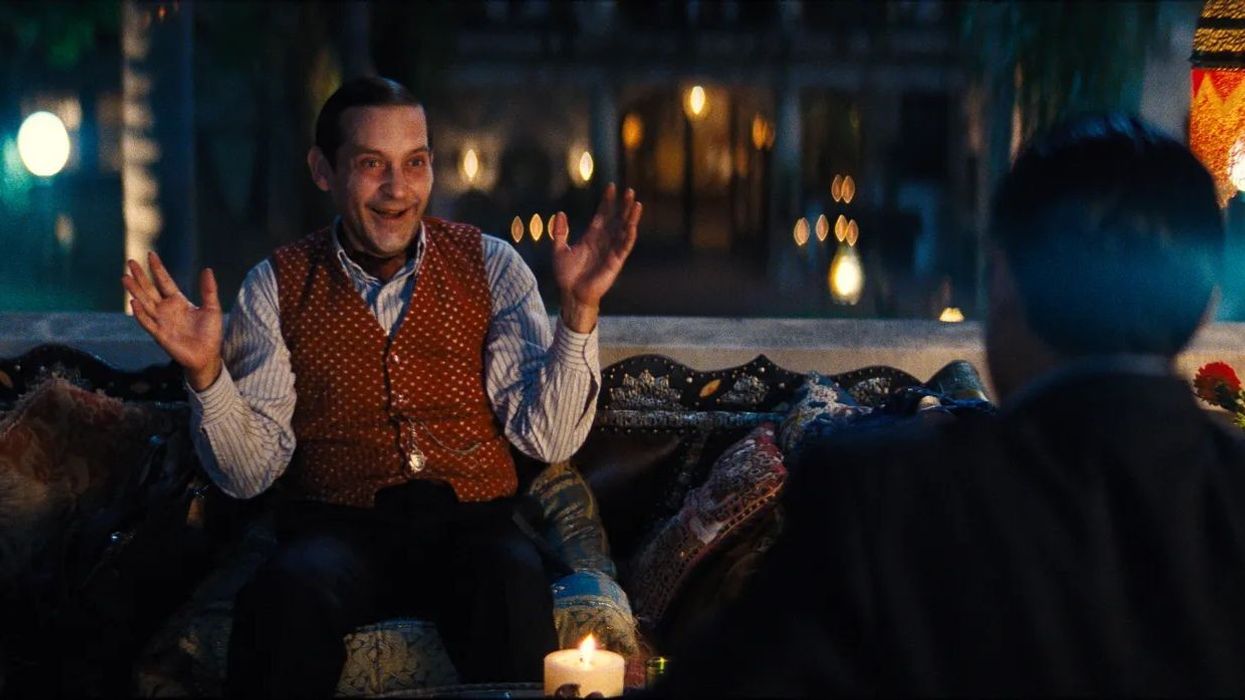Learn How Damien Chazelle Navigates His Love and Hate for Hollywood in 'Babylon'
Hollywood is glamorous and destructive, which leads to many artists having complicated relationships with the industry.

Damien Chazelle’s Babylonis a film that is not like his previous movies. Rather than being enthralled with the spectacle of greatness, Babylon focuses on the pitfalls of trying to build a system that ultimately spits everyone out.
Babylon, a story he has been writing since 2008, explores a statement that was lingering quietly throughout 2016’s La La Landand fills it with excess to highlight Chazelle’s true and complicated feelings toward Hollywood.
In a recent interview with Uproxx, Chazelle called Babylon his “hate letter and love letter” to the infectious nature of Hollywood.
“... after something like La La Land, it felt like I had this sort of desire to try to really get at the darker underbelly of Hollywood,” Chazelle said. “Which I think is just as much a part of the whole equation, to borrow that phrase, and to try to paint a portrait a little bit of the machine of Hollywood as an overall entity. So it’s bigger than any one person. It’s this sort of machine that was built by humans but kind of wound up very quickly dwarfing them, and it swallows humans up and chews them up and extracts their souls and spits them out and then moves on to the next generation. And that’s kind of horrific.”
While La La Land pays homage to the Golden Age of Hollywood with itsAmerican in Parisroots, the story focuses on the struggles of everyday people trying to find a place in a system that doesn’t care about them. La La Land has a happy ending—both of the main characters get what they want—and avoids exploring the darkness that is masked by the technicolor world of the film.
Babylon peels back the glamor of the Hollywood dream and unromanticizes it.

“It’s something about how old Hollywood is treated so often that I do think I’ve sort of even just subconsciously maybe reacted against it. Which is that there is this sort of tendency to romanticize and, to some extent, whitewash,” Chazelle said. “But you could say, even just more broadly, just sort of sanitize and clean up. It’s sort of doing Hollywood’s job for it.”
Telling a Hollywood story is and will always be tricky. Many of us who are trying to break into the industry or work in the industry face similar struggles and have made many sacrifices to get where we are. But those in the industry and outsiders give into the delusion of what is possible in Hollywood because we have seen countless success stories. Even when the industry was in adolescence, there was the promise of something new and exciting that intoxicated people to blindly leap into the system.
“But the ’20s, sort of more so than any other era, it’s like I think we’ve maybe lost some ability to see how tumultuous, how radical, how anarchic, how dangerous, how transgressive, how fraught that era was,” Chazelle said. “People coming out of World War I, coming out of the Spanish flu, coming out of decades of Victorianism. And then you find yourself in a sort of city that’s not even quite a city yet in Los Angeles. And this industry that’s not quite an industry yet. And this art form, movies, that half the world considers high in art form and half the world considers pornography and vulgar and trash. And so you have that kind of atmosphere and people are creating within it.”
Chazelle doesn’t want Babylon to feel like a hate letter toward the industry. Instead, it is an emotional exploration to discover Chazelle’s feelings about a system he is a part of.

During the interview, Chazelle clarifies his feelings about the industry by saying, “I think if there was any anger, it was more just maybe a subconscious reaction to certain kinds of depictions or myth-making that I’d seen before that just it felt like it was time to take a wrecking ball to them a little bit. But again, I would sort of argue that there’s just as much love in that depiction as there is hate. And so I kind of don’t agree with the idea of it being solely either one or the other.”
The industry can be an aggravating place, but we choose to be a part of it because we enjoy being creatives. We all have a complicated relationship as our dreams are challenged by a system that isn’t created to help new artists succeed.
Have you watched Babylon? Let us know your thoughts on the film in the comments.
Source: Uproxx











